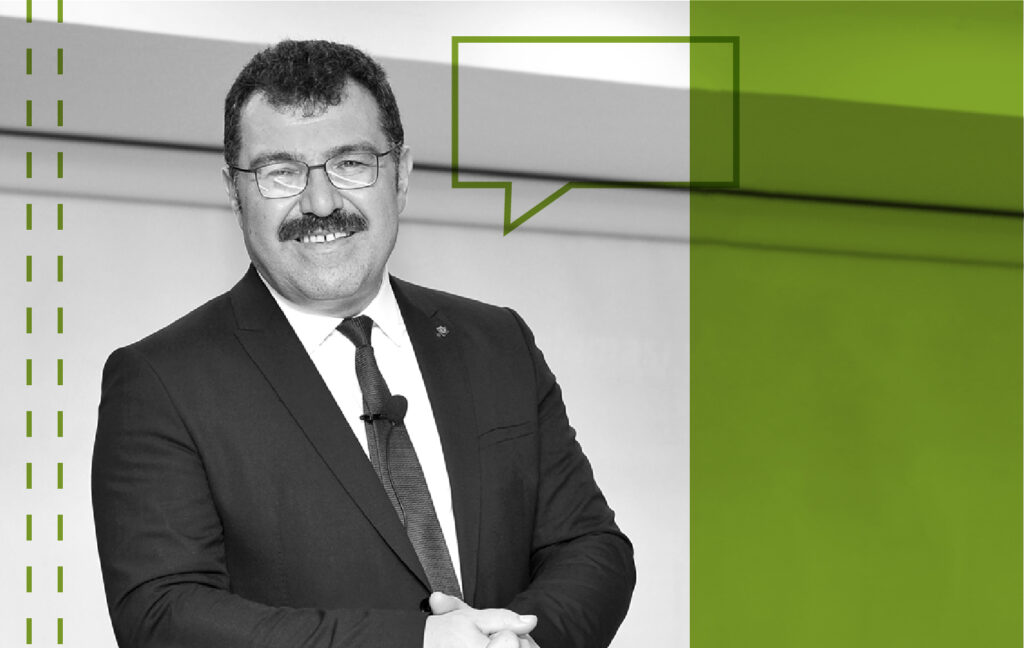8 January 2022
What do you see as the main benefits of EMBO’s Programmes?
EMBO is a very important example of collaborative, multidisciplinary, and multinational research efforts to address the grand challenges of our times. For instance, molecular biology has played an immense role in advancing the life sciences and has been a key driving force for biomedical and translational research during the pandemic. TÜBİTAK is dedicated to supporting the R&D and innovation ecosystem, including the life sciences, and this has underpinned our long-term commitment with EMBC and EMBO.
TÜBİTAK has been a major supporter of EMBO activities, including as a founding member of the EMBO Strategic Development Installation Grant, which supports young researchers in establishing labs in their home countries. Becoming an EMBO Fellow, grantee, or participating in an EMBO scientific event can have a great impact on a researcher’s career. It provides opportunities to learn, build collaborations, and network, while also supporting institutions in furthering international scientific relations. Many researchers active in EMBO have also received prestigious TÜBİTAK Science and Incentive Awards.
Basic research in areas such as molecular biology requires continued, long term commitments and well-designed incentives and policies. We are determined to build on our ongoing partnership with EMBC and EMBO and welcome efforts to encourage broader participation. I have confidence that these important collaborations will continue, so that the molecular biology research landscape is strengthened at a time when it is needed most.
What are the current trends in the life sciences landscape in Turkey?
The life sciences landscape is being shaped by new opportunities as well as new challenges. For example, we have mobilized our research ecosystem during the pandemic through the COVID-19 Turkey Platform, an initiative to drive the development of vaccine and drug candidates against the SARS-CoV-2 virus. The platform has brought more than 400 researchers from nearly 50 different institutions together, sharing research infrastructures, resources, and expertise. The platform has accelerated vaccine and drug candidate development: two vaccine candidates and two repurposed drugs projects have proceeded clinical studies. Together with the Minister of Industry and Technology, we both participated as volunteers in the phase 1 clinical studies of one of our vaccine candidates: the fourth of its kind in the world to be based on ground-breaking virus-like particles technology that has completed phase 2 and is continuing to phase 3. We believe in the vast potential of our scientists and an enormous effort has been put into this intense process.
It is estimated that there are around 6,500 human diseases with a known molecular basis, while we are only able to provide treatments for around 500 of them – there a pressing need for more breakthroughs. Co-creation based collaboration will continue as a trend to help meet these challenges, as will the integration of technologies such as high-performance and grid computing. We are also focussed on supporting young researchers to take part in collaborative research: TÜBİTAK’s STAR program, for instance, supports undergraduate researchers with project placements across a wide range of scientific disciplines, including in the life sciences. TÜBİTAK provides a wide range of fellowships and grants for early-career researchers – including for postdoctoral researchers wanting to spend a year abroad, and support for early-career scientists who want to return to Turkey or come to our country to pursue research careers. Regardless of the scale of the challenges, they can be better addressed by working together.
What other opportunities are available for life scientists in Turkey?
TÜBİTAK provides an array of opportunities including fellowships for excellent international scientists to come to Turkey and renowned domestic initiatives such as the National Outstanding Researchers Programme. Life science projects resulting from such initiatives span a wide range of areas, from basic science to new technologies. Life scientists in Turkey are also engaged in multiple co-creation opportunities, particularly in high-technology platforms, with participation from European institutions. These include initiatives based on advanced drugs for autoinflammatory diseases, targeted pan-cancer therapies and diagnostic kits, and drugs and vaccines against influenza. Moreover, molecular biology, genetic engineering, and drug development technologies are priorities for university scholarships, while health firms in Turkey partner with universities through the Industrial Doctorial Programme.
Early-career life scientists in Turkey have exciting opportunities ahead of them that can be shaped according to their research goals and ambitions: my advice to them is to follow their curiosity and see where it leads, integrate themselves into research networks, and take advantage of opportunities provided by, for instance, EMBO, the European Research Council and Marie Curie Mobility Grants. Rising to the challenges that await us will require both talent and collaboration.



